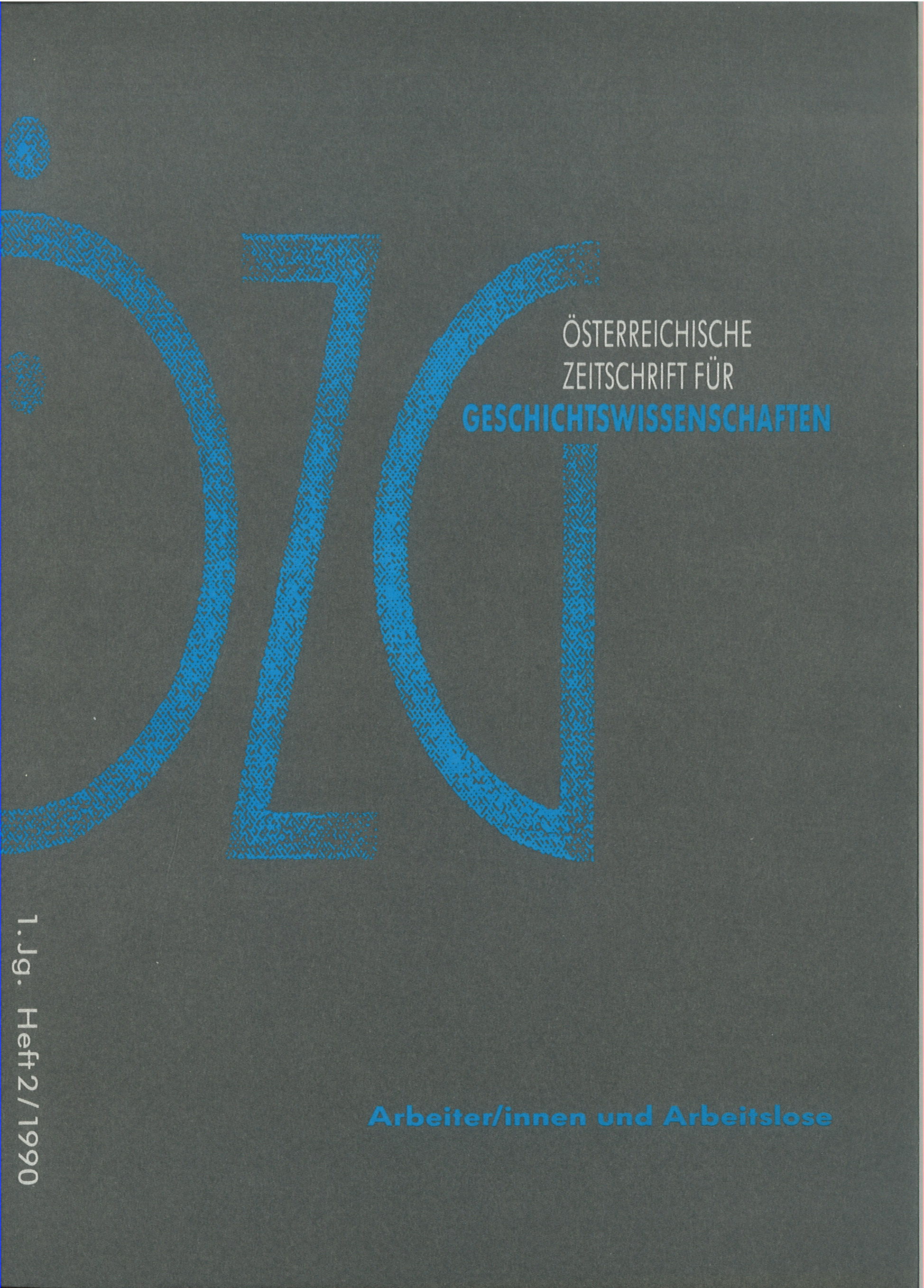Zwischen Protest und Resignation
Arbeitslose und Arbeitslosenbewegung in der Zeit der Weltwirtschaftskrise
DOI:
https://doi.org/10.25365/oezg-1990-1-2-3Abstract
For a long time the approaches to the social effects of unemployment in industrial societies have been dominated by a dichotomy: On the one hand, the ,movement’ of unemployed was looked at especially from the point of view of demonstrations, riots, outbreak of violence, unemployed councils and fear of a revolution caused by mass unemployment. On the other hand, the unavoidable consequences of unemployment were often described as resignation and political apathy, thus following the famous Marienthal study. Although, there exists a more differentiated perspective on present-day unemployment similar studies on the inter war period are still missing. In this article the author outlines the history of the unemployed movement in countries like Austria, Germany and Britain in the 1930ies. He points out - refering also to oral history interviews - that the hypothesis which links unemployment with specific forms of social and organizational behaviour, in particular with violence, has no global validity and that the attitude of unemployed can be described more appropriately in a multidimensional way depending on variing circumstances such as age, gender, area, membership to a political movement, duration of unemployment and the attitude towards work before becoming unemployed.


